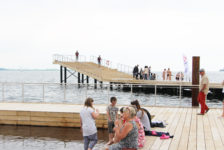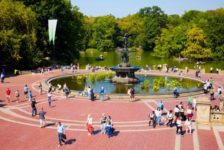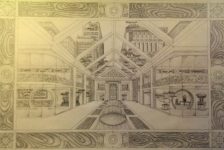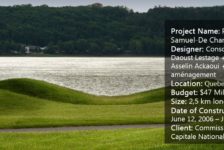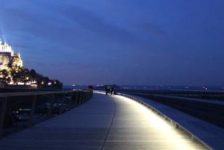Cultivating the next generation of successful landscape architects means offering the opportunity to hone important skills that are not always taught in the classroom. This needs to be done before students leave the classroom because the learning curve that takes place in the first few years as a landscape architect job is steep. It quickly becomes apparent that there is a large gap between the theoretical approach taught in the classroom and the actual practice of applying it to real project work. Working for communities and with clients means understanding construction budgets, managing time constraints, navigating material limitations, and many more challenges, all the while trying to create meaningful and impactful work. As seasoned landscape architects, we need to take the time to invest in our next generation of professionals to help close the gap between academia and professional practice. Design Workshop’s Design Week and the Dr. Charles Fountain Internship Program are two examples of how we are providing practical experience for undergraduate and graduate students.
Design Week
Design Workshop is a firm born in academia and has long been committed to maintaining a strong connection with the research and theory that exists in each of the firm’s eight studios. In 2008, DW Design Week was born. This week-long student charrette involves our staff and students from a university with an accredited landscape architecture program to focus on a real project for a real client. It is meant to provide freshmen to graduate students with the opportunity to learn how to effectively implement a replicable design process in a team atmosphere as they create and present a unified design plan to the actual client.
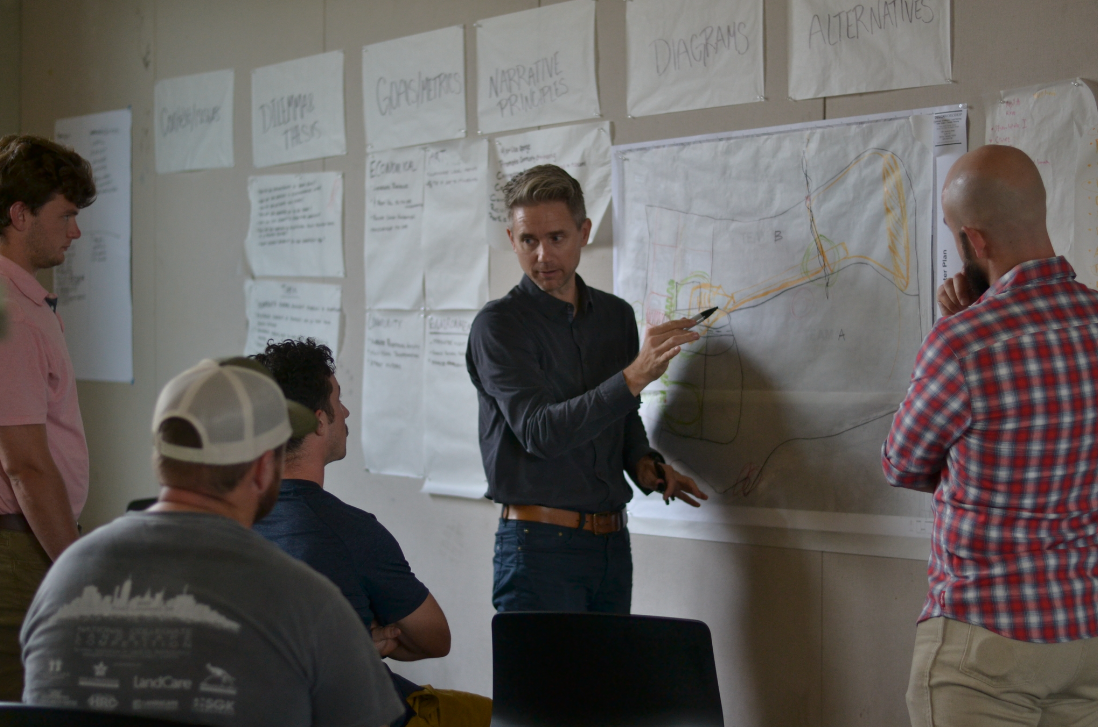
Image: Design Workshop
The primary objective of Design Week is to bridge the gap between academia and professional practice. Students develop an appreciation for the role real-world constraints play on projects. These constraints are defined by in-depth research, site discovery and inventory, community engagement, and discussions with project stakeholders. At the conclusion of the program, the student teams learn how to tell a great story and make a convincing design argument supported by research and measurable outcomes. We require the teams to quantify their design solutions based on the firm’s Legacy Design process in the categories of Community, Economics, Environment, and Art. These project metrics bring meaning and purpose to their work.
Celebrating nearly 20 years of service to universities across the country, Design Workshop’s Design Week has been conducted at more than 15 colleges and universities, including hundreds of participating students, with the next one scheduled for August at North Carolina Agricultural and Technical State University.
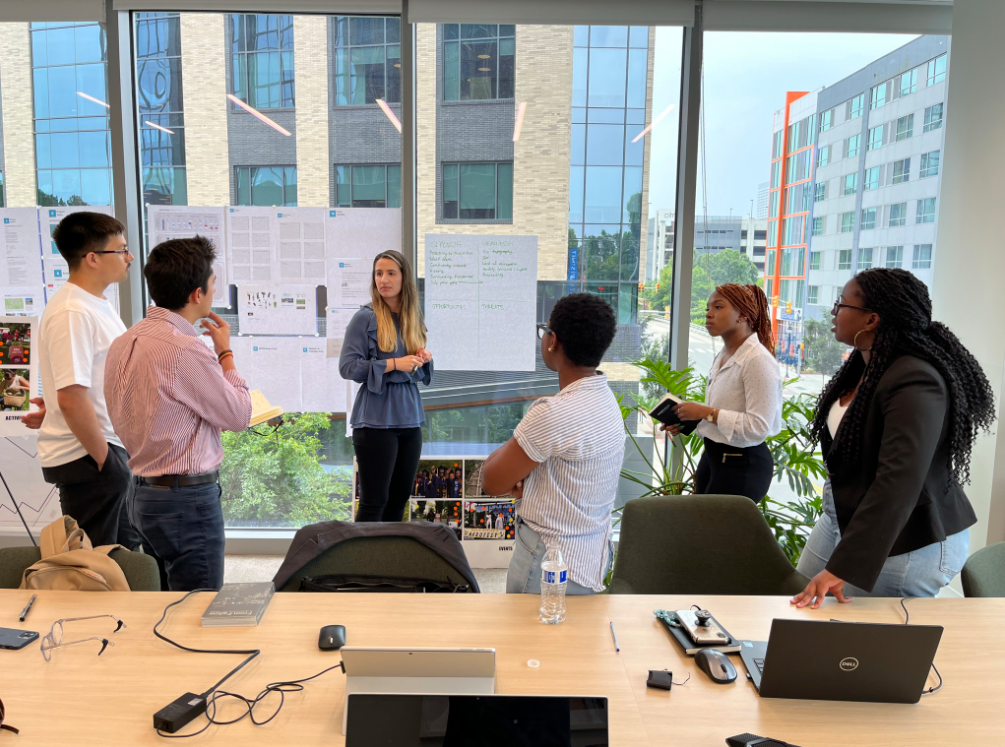
Image: Design Workshop
Dr. Charles Fountain Internship Program
Design Workshop relaunched its paid internship program in 2021. This 10-week in-depth program is designed to provide opportunities for students of color, who are often underrepresented in the fields of landscape architecture and planning, and provide exposure to a broad range of project types and gain valuable experience in a professional studio environment. It brings together students from across the country who might otherwise not have the same opportunities as traditional students. The program partners with Design Workshop’s 501(c)(3) Foundation to provide design assistance to communities of need. Students divide their time between a range of projects, including a signature Dr. Charles Fountain team project. The internship was established in honor of Dr. Charles Fountain, founder of the Landscape Architecture Program at North Carolina A&T State University.
In 2022, the Charles Fountain Interns worked with an underserved neighborhood in Denver. The interns created a toolkit for the neighborhood which communicated and advocated for the value of green infrastructure, validating residents’ stories of lived experience with data and analysis and identified priority improvements to maximize the Coalition’s limited resources. DW Foundation’s support for the Green Dot Coalition has continued this year to support implementation and planning efforts for Greening Five Points and will help engage the neighborhood in improvements that will provide dramatic and lasting environmental, social, and climate resilience benefits.
In 2023, the Charles Fountain program traveled to Lewiston Woodville, North Carolina. The interns spent the kick-off week working with Design Workshop’s Raleigh studio and experienced an in-depth site investigation including taking soil samples, inventorying invasive species, and habitat analysis, along with engagement efforts with the Mayor and other people of the town as well as the neighbors of the future park. The Design Workshop and its Foundation have partnered with Kofi Boone, professor from North Carolina State University, to prepare grant materials to secure additional funding for the implementation of the intern’s work.
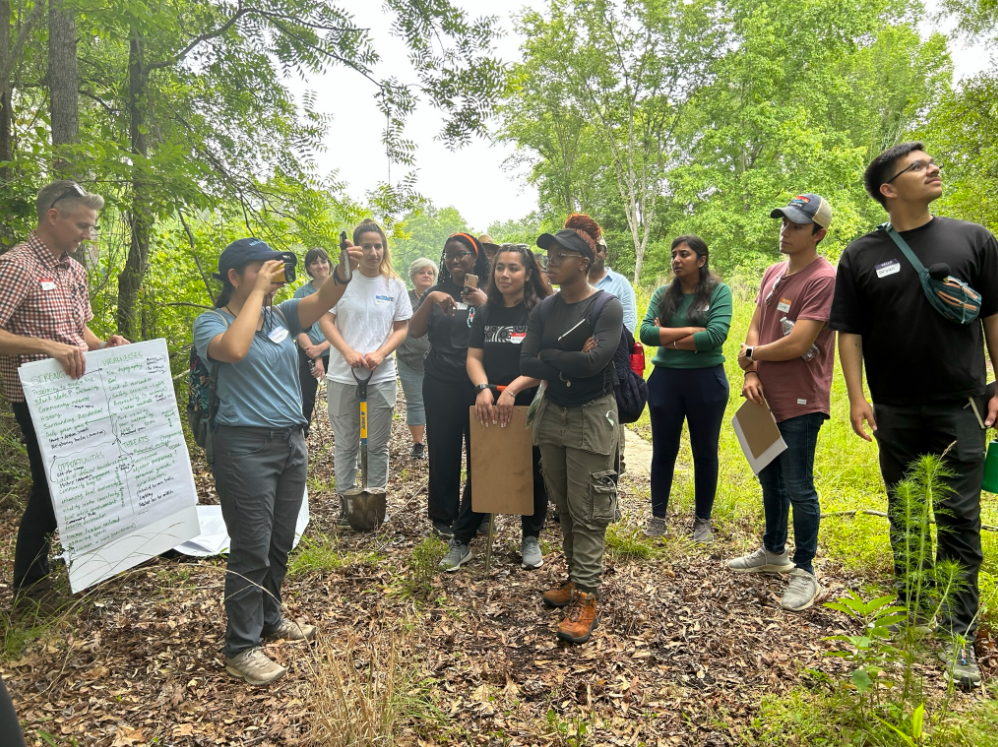
Image: Design Workshop
In 2024, the Charles Fountain Interns are tackling an eight-acre park, Augustus F. Hawkins Natural Park south of Los Angeles in Compton. This year’s week-long kick off concluded with a day of service where the interns worked alongside Los Angeles – based DW staff and community members to perform much needed maintenance on the park. The students will be focused on creating a park assessment document that will measure the impact of the past 25 years and a master plan document that resets the bar for the next 25 years. This year’s program has the unique opportunity to include the original Landscape Architects of the park Stephanie Landregan and Randy Hester as critical advisors for the program.
Committing time and resources to the next generation of Landscape Architects and Planners is an obligation that must be delivered on by professionals today. Our industry must develop and nurture strong relationships between academia and professionals to successfully bridge the gaps and provide exposure and opportunity for our students. Please connect with me to collaborate or share ideas. I can be reached via email at rberg@designworkshop.com.
—
Lead Image: Design Workshop




